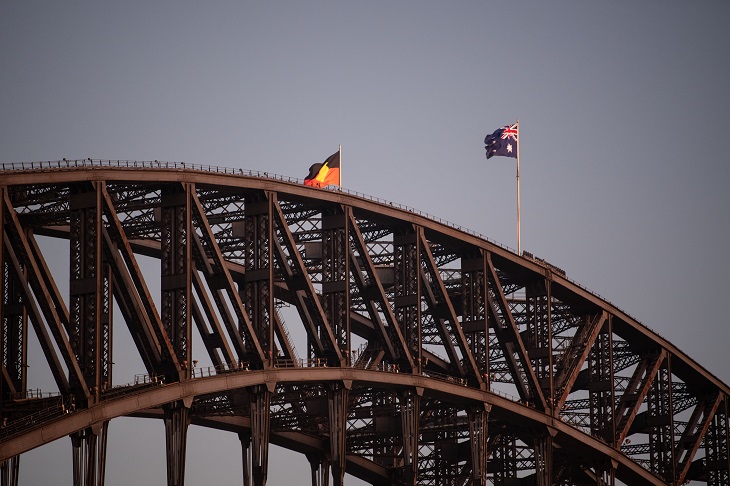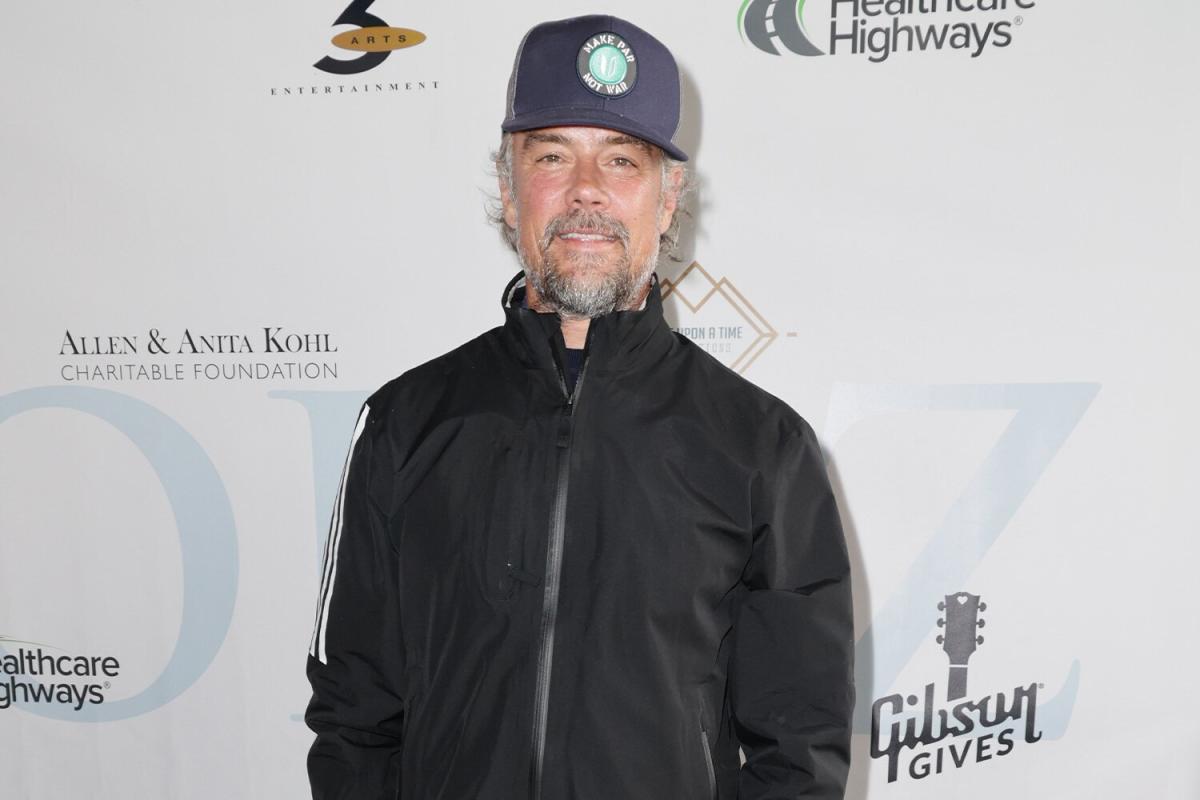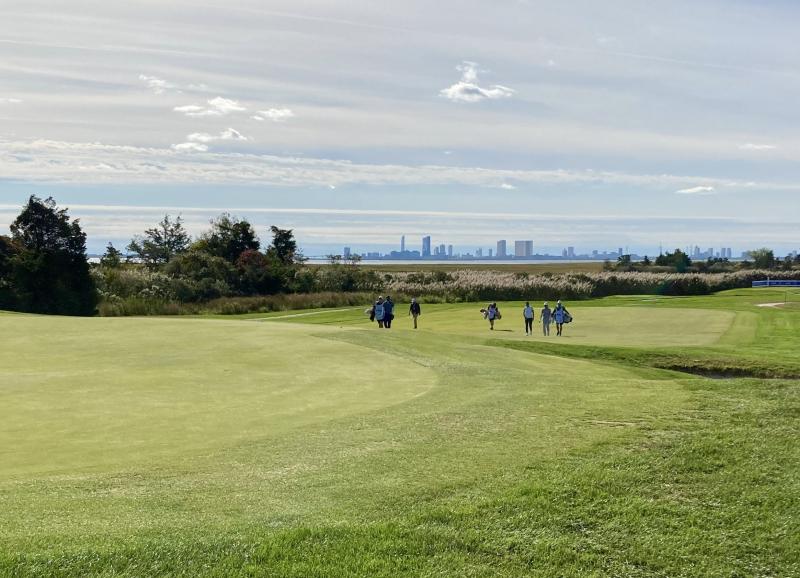Vote Liberal? Vote ‘no’ for an Indigenous Voice to Parliament

Earlier this week, the Guardian published an article by former Liberal ACT Chief Minister Kate Carnell: Vote Liberal? You should vote ‘yes’ for an Indigenous Voice to Parliament.
As a fellow member of the Liberal Party, I vehemently disagree with nearly every assertion made in this pro-Voice exposition, and as someone who feels strongly that the right course for all Liberals is to oppose the Voice to Parliament, I offer this review article in response.
Ms Carnell begins thus:
‘A Voice to Parliament is fair, practical, and constitutionally safe.’
If I was a bear, I might feel poked; I am able to offer three separate objections to this sentence. Firstly, the Voice to Parliament, as it is proposed, is not, in the literal sense of the word, ‘fair’. If something is fair, it is ‘impartial and just, without favouritism or discrimination’. The definition’s second clause is of relevance; whereas the Voice to Parliament may be subjectively argued by some as ‘just’, no one could argue that it is indiscriminate. It is discriminating by design in that it is an additional democratic instrument, constitutionally enshrined, for 3.8 per cent of Australia’s population. The Voice is a second voice for some, but not all. That is, definitively, unfair.
In my opinion, the Voice is neither ‘practical’ nor ‘constitutionally safe’. I take Ms Carnell’s point in that I think she uses ‘practical’ to suggest the Voice would afford greater agency to the 3.8 per cent who stand to benefit from it. But just because a person is enabled to make decisions doesn’t necessarily mean they will make the right decisions. Agency is one matter, but the implication is that this supposedly practical Voice is ‘likely to succeed or be effective in real circumstances’. The reality is that absolutely no guarantee can be made to this effect. The Voice itself is historically untested, and history has proven time and time again that nations that purposely politicise race seldom succeed. Frequently, Jacinta Price reminds us that the Uluru Statement from the Heart was exclusive in its conception and that there are many Aboriginal Australians who don’t recognise it as a legitimate Indigenous ambition. In proposition, the Voice is vague, and now in execution, it is proving divisive. None of this remotely suggests that it is practical or constitutionally safe.
The article continues:
‘We are approaching a referendum which will ask if constitutional recognition of Indigenous Australians should be in the form requested by Aboriginal and Torres Strait Islander people – a Voice to Parliament.’
Again, I must emphasise that only some Aboriginal and Torres Strait Islander people have ‘requested’ the Voice. But my senior objection in this instance is the conflation of constitutional ‘recognition’ and constitutional ‘amendment’. The Voice to Parliament is much more than simply recognising the historical legacy of Aboriginal Australians. It is the implementation of a race-based advisory body that, ambiguously, ‘may make representations to the Parliament and the Executive Government of the Commonwealth’ and that the Parliament may ‘make laws with respect to … its composition, functions, powers and procedures’. More on that last point forthwith, but let us immediately accept that the Voice, as proposed, transcends the confines of mere Indigenous recognition in the Constitution.
The other issue here is that those who support the Voice infer that Aboriginal Australians are not already recognised in the Constitution; they are. They are recognised as Australians, as we all are. That is truly fair. For anyone to argue otherwise, that Aboriginal Australians are not recognised in the Constitution, is to fundamentally assert that they are not Australians. There are some that argue this insistence on separation is to legitimise sovereignty to facilitate governance independent from the Commonwealth of Australia.
‘A career in and around public policy has led me to what I regard as an incontrovertible truth: listening to people results in better policy.’
Broadly and in principle, I agree with Ms Carnell on this point. Philosophically and in practise, I challenge her. An ‘incontrovertible truth’ seems to me to be that a person can only be heard if they speak, and so a politician can only really listen to their constituents who engage politically. In an Australian context, this reality proves problematic. Approximately only 150,000 Australians – less than 1 per cent of the country – are financial Liberal or Labor members, and whilst it would be naive to suggest that political engagement depends solely upon party membership, it is well documented that Australians are generally apathetic when it comes to politics – 20 per cent ‘at least’ are ‘politically uninterested’. Moreover, Smith, Vromen, and Cook find that periods of low confidence in democracy coincide with falling voter commitment to politics (81). Australians today do have low confidence in their democracy; in 2018, only 41 per cent of Australians felt democratically satisfied, down from 86 per cent in 2007. As more than 600,000 votes cast in the 2022 federal election were informal, Smith, Vromen, and Cook’s conclusion seems both accurate and relevant.
With few Australians actively engaged in politics, the Voice debate becomes for those with the resources very easy to manipulate. Canberra; the majority of corporate Australia; most sports, arts, and public institutions; and a plethora of other well-financed, influential entities all support the Voice. Genuinely coincidental, or intentionally sinister? In any case, claims that ‘listening to people results in better policy’, is absolutely right – but only if we are listening to an honest dialogue, not an orchestrated echo chamber.
Politicians also need to make an effort to listen honestly; I can’t find much in the way of evidence that city proponents of the Voice have journeyed beyond the leafy-green arcades of wealthy suburbs to places like Cherbourg or Aurukun. How on earth would they know, definitively, what Aborigines want without taking such a basic measure?
Back to the article:
‘Constitutional recognition of Indigenous Australians should be championed by Liberals.’
‘What can be asserted without evidence can also be dismissed without evidence,’ remarked Christopher Hitchens. Game, set, and match.
‘After more than a decade of bipartisan commitment to closing the gap between Indigenous and non-Indigenous Australians, the evidence of ongoing policy failure continues to be written into performance reports. The political class has tried and failed.’
The political class has indeed failed – since the Gorton government, in fact, with the establishment of the Australian Institute of Aboriginal and Torres Strait Islander Studies in 1964. That being the case, why do supporters of the Voice to Parliament, overtly radical and baked in politicisation, believe it would yield any different result?
‘When Aboriginal and Torres Strait Islander people were asked what form constitutional recognition should take, their answer was that it should be in the form of a Voice to Parliament.’
Again, only some Aboriginal and Torres Strait Islander answered.
‘The voice will provide advice on matters affecting Indigenous people, delivering practical, workable policy.’
This delineation might be viewed as unnecessarily prickly, but I do think it’s important: what matters, exactly, do and don’t affect Aboriginal Australians? I am reminded of Benjamin, one of Orwell’s more enigmatic characters: ‘All animals are equal, but some animals are more equal than others.’ Aboriginal Australians are always affected by policies that non-Aboriginal Australians are affected by, but non-Aboriginal Australians are not always affected by policies that Aboriginal Australians are affected by. The Voice’s scope, therefore, literally becomes beyond definition.
‘[Liberals for Yes] want[s] to ensure that Liberals across Australia feel empowered and comfortable to vote yes and even advocate for [the Voice] in their communities.’
I visited the Liberals for ‘Yes’ website, which isn’t yet indexed by Google. There’s absolutely no information about what or who the organisation is, though you are invited to enter your personal details to, presumably, ‘stay in touch’.
‘The Liberal party’s greatest tradition is that it is a broad church that accommodates a diverse range of views.’
I welcome Ms Carnell making this point, because I have been waiting for an appropriate moment to publicly gazette this view: the Liberal Party of Australia is a political party, not a think tank. A Liberal policy, to be Liberal, must accord with the party’s foundational principles outlined by Robert Menzies. The broad church is constructed of Menzies; that is, a person who believes in illiberal, anti-Menzian policies brooks no pew within the Liberal broad church. The Voice to Parliament is an illiberal, anti-Menzian proposal. Of Menzies’ 1954 ‘We Believe’ proclamation, strong individual cases can be mounted that the Voice violates Propositions 2, 4, 6, 8, and 9. If enshrined, it may seek to violate Proposition 1.
At the rate we’re going, the broad church will burn down because we let through its pearly gates individuals who, despite being individuals, were never actually disciples of Menzies.
‘While many people have questions, [the wider Yes movement] want[s] to support people getting the answers at a community level – away from the often noisy debate in federal parliament or the media.’
The debate is ‘noisy’ by design, as discussed above. And ‘many people have questions’ because this Voice, this serious constitutional amendment, has been poorly explained – again, by design.
‘For myself and Liberals for Yes, ensuring sustained and consistent consultation with Aboriginal and Torres Strait Islander people on matters that affect them is key to better outcomes.’
There are innumerable Aboriginal Australians who oppose the Voice. As far as I can tell, they are not enjoying ‘sustained and consistent consultation’ with government.
‘I am sometimes asked about the potential problems with allowing a voice to make representations to “executive government”.’
Now, there’s a thought! See Janet Albrechtsen’s ever-brilliant concerns.
Eventually, the article arrives at its last substantial point:
‘The proposed constitutional amendment is a guarantee for some form of ongoing representation on behalf of Indigenous people. Over time, the form and role of that representation can and will change as the parliament deems appropriate. This ability for the parliament to adjust the voice is a critical safeguard that is often overlooked in the current debate. It will ensure the voice can evolve to be not just effective, but fit for purpose.’
Much of this we have already covered. ‘Some form’ is vague. Most importantly, though, is ensuring the Constitution’s solidity is never compromised. That solidity is, after all, its greatest strength. The Voice, under the guise of adjustment and evolution, creates a situation in which politicians begin to legislate the Constitution. Such is totally and utterly unprecedented and disadvantageous and should be immediately discouraged as contrary to the interests of a stable and democratic society.
Ms Carnell is to be commended for expressing her attitudes and opinions, but I cannot in good faith echo her position. In fact, I decry her position. Liberals should not vote Yes to the Voice. Liberals should vote No to the Voice. Because, to synthesise all my arguments above, there is seemingly nothing on balance to suggest that Robert Menzies would have supported either the Voice to Parliament or the Uluru Statement from the Heart.
Alexander Voltz is a composer. He is a member of the Liberal Party.













